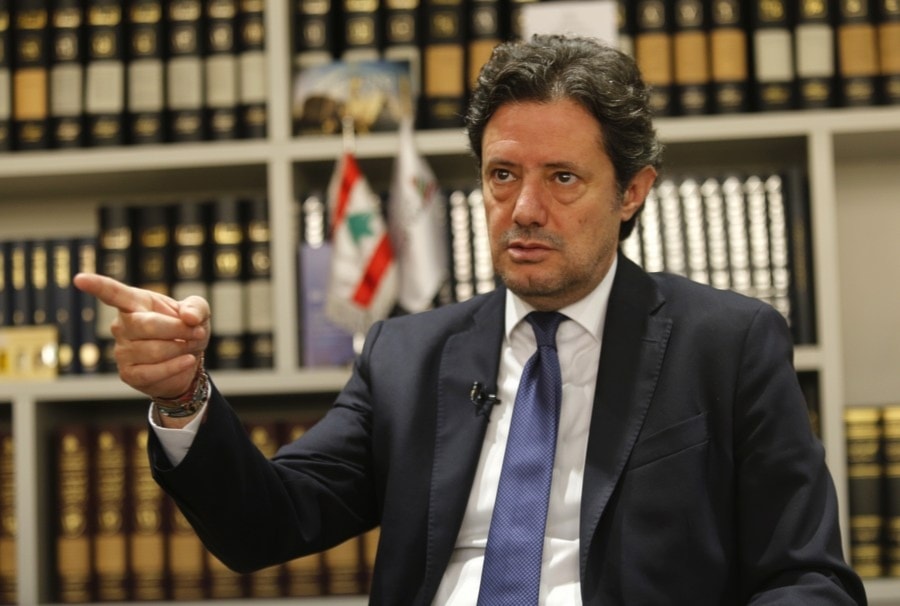Lebanese minister cautions against spread of divisive news amid war
The minister of information in Lebanon's caretaker government warned against the dissemination of inaccurate or misleading information that could endanger Lebanese citizens or ignite sectarian conflict during this critical period.
-

Lebanese caretaker Minister of Information, Ziad Makari. (NNA)
Ziad Makary, the minister of information in the caretaker government, underscored in a statement the imperative for media outlets and websites to exercise caution and refrain from inciting tensions that could threaten civil peace during times of war.
He said that any inaccurate or misleading information in this catastrophic situation that the country is facing can lead to confusion, fear, and widespread unrest, which could escalate into sectarian conflict.
The Ministry of Information is actively addressing these concerns, while the National Council for Audiovisual Media is carrying out its responsibilities in this regard.
However, given the current circumstances, the minister cautions against publishing news that could plunge the country into conflict, jeopardizing civil peace and the safety of citizens.
He asserts that the ministry will take appropriate measures if media outlets do not uphold accuracy and sensitivity in their reporting, referencing legal provisions that penalize actions undermining national sentiment or disseminating false information during wartime.
Makary's statement came in response to significant backlash from Lebanese citizens against a news broadcast channel that many believed was inciting violence against those seeking refuge in public facilities, including schools.
The channel suggested that members of the Islamic Resistance might be among these refugees, a claim that many viewed as both dangerous and misleading.
On Twitter, Lebanese citizens took to sharing various parts from the news broadcast channel, voicing their outrage. They labeled such manipulation of words as traitorous in the current context, highlighting the potential consequences of provocative language during a period of heightened conflict and uncertainty.
The widespread condemnation reflected a collective demand for accountability and a call for media outlets to exercise greater caution in their reporting.
Lebanese citizens also circulated posts written by a Lebanese political commentator after she published a tweet that was considered "subversive and provocative", in which she addressed members of the Islamic Health Association, which is affiliated with Lebanon's Civil Defense, as members affiliated with Hezbollah - publicly instigating harm against the health workers by associating them with Hezbollah at this critical time.
The Lebanese expressed their great anger at the tweet issued by the commentator against members of the association, especially after the Israeli occupation targeted members of the association neighborhood in the heart of Beirut.

 3 Min Read
3 Min Read








